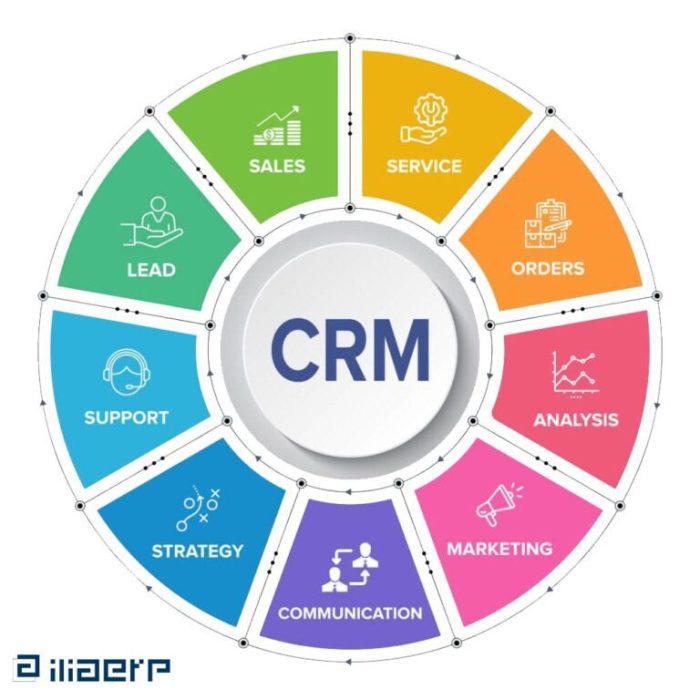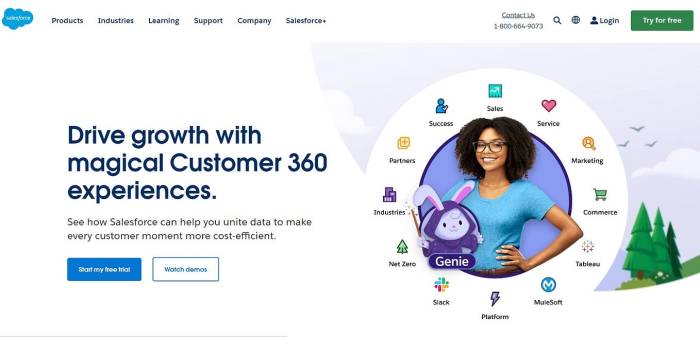Customer service software crM – In today’s competitive landscape, exceptional customer service is no longer a luxury—it’s a necessity. Businesses that prioritize customer satisfaction often see increased loyalty, higher retention rates, and ultimately, greater profitability. A crucial tool in achieving this is Customer Relationship Management (CRM) software integrated with robust customer service capabilities. This comprehensive guide delves into the world of customer service software within a CRM framework, exploring its features, benefits, and how to choose the right solution for your business.
Understanding Customer Service Software within a CRM: Customer Service Software CrM
Customer service software, often a core component of a CRM system, streamlines interactions between your business and your customers. It goes beyond basic contact management; it empowers your team to handle inquiries efficiently, resolve issues quickly, and build stronger customer relationships. A good CRM with integrated customer service capabilities offers a centralized platform to manage all customer interactions, from initial contact to post-sales support.
Key Features of Customer Service Software in CRM, Customer service software crM
- Ticketing System: Organizes customer inquiries into manageable tickets, assigning them to agents and tracking their progress. This ensures no request falls through the cracks.
- Knowledge Base: Provides a searchable repository of frequently asked questions (FAQs), articles, and tutorials, empowering customers to self-serve and reducing the workload on support agents. This is also known as a help center.
- Live Chat: Enables real-time communication with customers on your website or within your application, offering immediate assistance and improving customer satisfaction.
- Email Management: Integrates with your email client, allowing agents to manage customer emails directly within the CRM, providing a unified view of customer interactions.
- Phone Integration: Connects phone calls to the CRM, automatically logging call details and associating them with the customer’s profile. This includes features like call recording and call tracking.
- Social Media Integration: Monitors and responds to customer inquiries and feedback across various social media platforms, centralizing all communication channels.
- Reporting and Analytics: Provides valuable insights into customer service performance, including metrics like average resolution time, customer satisfaction scores (CSAT), and Net Promoter Score (NPS). This allows for data-driven improvements.
- Automation: Automates repetitive tasks such as email responses, ticket routing, and follow-ups, freeing up agents to focus on more complex issues.
- Self-Service Portal: Empowers customers to find answers to their questions, track their tickets, and manage their accounts independently, reducing the burden on support teams. This is closely tied to the knowledge base functionality.
Benefits of Using Customer Service Software Integrated with CRM
Implementing customer service software within a CRM offers numerous advantages:

Source: risepath.com
- Improved Customer Satisfaction: Faster response times, personalized interactions, and efficient issue resolution lead to happier customers.
- Increased Efficiency: Automation and streamlined workflows allow agents to handle more inquiries in less time.
- Reduced Costs: Improved efficiency and self-service options can significantly reduce support costs.
- Better Team Collaboration: A centralized platform facilitates seamless communication and collaboration among support agents.
- Enhanced Customer Loyalty: Positive customer experiences foster loyalty and encourage repeat business.
- Data-Driven Decision Making: Detailed reporting and analytics provide valuable insights to improve customer service strategies.
- Scalability: CRM systems can easily scale to accommodate growing business needs and customer volumes.
- Improved First Contact Resolution (FCR): With access to a comprehensive customer history and knowledge base, agents can resolve issues more effectively on the first contact.
- Personalized Customer Experiences: CRM systems allow for personalized interactions based on customer data, creating a more positive experience.
Choosing the Right Customer Service Software
Selecting the appropriate customer service software depends on several factors:
- Business Size and Needs: Small businesses may require simpler solutions, while larger enterprises need more sophisticated systems with advanced features.
- Budget: Software options range from affordable cloud-based solutions to more expensive enterprise-level systems.
- Integration Capabilities: Ensure the software integrates seamlessly with your existing systems, such as your website, email client, and other business applications. API integrations are crucial here.
- Scalability: Choose a system that can grow with your business, accommodating increasing customer volumes and evolving needs.
- User-Friendliness: The software should be intuitive and easy for your agents to use.
- Customer Support: Consider the level of customer support offered by the software vendor.
- Security: Ensure the software provides robust security measures to protect sensitive customer data. Compliance with regulations like GDPR is vital.
Popular Customer Service Software & CRM Platforms
The market offers a wide array of customer service software integrated with CRM platforms. Some popular options include:
- Salesforce Service Cloud: A powerful and comprehensive solution for large enterprises.
- Zendesk: A popular and versatile platform suitable for businesses of all sizes.
- Freshdesk: A user-friendly and affordable option for smaller businesses.
- HubSpot Service Hub: A robust option integrated with other HubSpot tools.
- Microsoft Dynamics 365 Customer Service: A powerful solution integrated with the Microsoft ecosystem.
Frequently Asked Questions (FAQs)
- Q: What is the difference between CRM and customer service software? A: CRM is a broader term encompassing all aspects of customer relationship management, while customer service software is a specific component focusing on handling customer inquiries and support.
- Q: How much does customer service software cost? A: Pricing varies greatly depending on the features, vendor, and number of users. Expect a range from free plans for basic functionality to thousands of dollars per month for enterprise-level solutions.
- Q: How do I choose the right customer service software for my business? A: Consider your business size, budget, integration needs, scalability requirements, and user-friendliness preferences. Try free trials or demos before committing.
- Q: What are the key metrics to track in customer service? A: Key metrics include average resolution time, customer satisfaction (CSAT), Net Promoter Score (NPS), first contact resolution (FCR), and ticket volume.
- Q: Can customer service software integrate with other business tools? A: Yes, many platforms offer robust integration capabilities with email clients, live chat tools, social media platforms, and other business applications via APIs.
Conclusion
Investing in robust customer service software integrated with a CRM is a strategic decision that can significantly impact your business’s success. By streamlining operations, improving customer satisfaction, and providing valuable data-driven insights, these solutions empower businesses to build stronger customer relationships and achieve sustainable growth. Choosing the right platform requires careful consideration of your specific needs and priorities.
Take the time to research your options, explore free trials, and select the solution that best aligns with your business goals.
Call to Action
Ready to transform your customer service? Explore the leading CRM and customer service software options available today and start building stronger, more profitable customer relationships!
FAQ Corner
What are the key features of a good customer service CRM?

Source: ilia-erp.com
Key features include robust ticketing systems, integrated live chat, comprehensive contact management, automated workflows, reporting and analytics dashboards, and seamless integration with other business tools.
How much does customer service CRM software cost?

Source: medium.com
Pricing varies widely depending on the features, scalability, and vendor. Options range from affordable cloud-based solutions to enterprise-level systems with significant upfront investment.
How can I choose the right CRM for my business?
Consider your business size, specific needs, budget, and the level of technical expertise within your team. Research different vendors, compare features, and request demos before making a decision.
What is the return on investment (ROI) of a CRM system?
ROI varies but typically includes improved customer satisfaction, increased efficiency, reduced operational costs, and enhanced revenue generation through improved customer retention and acquisition.
